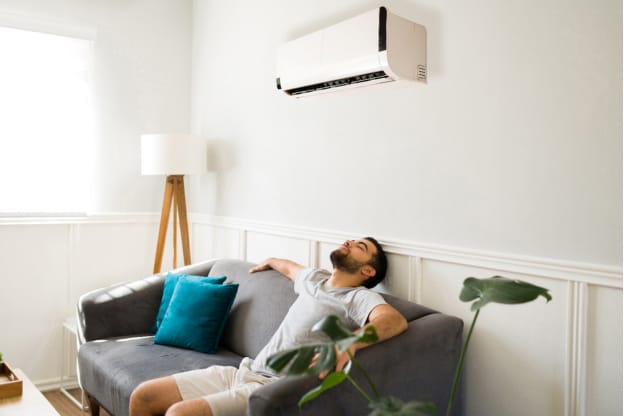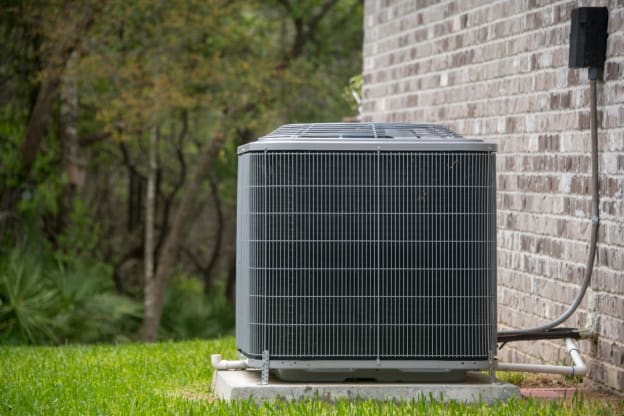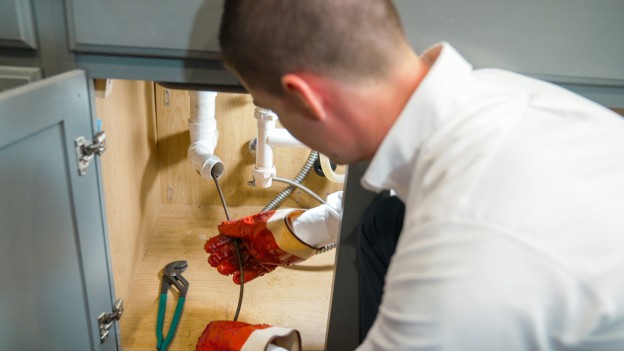When it comes to home heating and cooling systems, the terms “furnace” and “HVAC” are often used interchangeably. However, they are not one and the same. HVAC stands for heating, ventilation, and air conditioning, so heating is a part of it, but a furnace is only responsible for heating.
It’s important to understand the differences between a furnace and HVAC if you want to maintain your system – and upgrade it when the time comes. Let’s explore the differences between a furnace and HVAC, their individual components, and how they work together from the experts at Swan Denver.
What Is a Furnace?
A furnace is a heating system that’s responsible for generating and distributing warm air throughout a building. Furnaces can use a variety of fuels, including natural gas, electricity, propane, or oil, to produce heat. They are a vital component of a central heating system.
What Is HVAC?
HVAC is a comprehensive system that encompasses heating, ventilation, and cooling components. It’s responsible for maintaining a comfortable indoor climate. HVAC systems include a furnace or another heat source for heating, as well as an air conditioner for cooling and a ventilation system to circulate air.
Heating Components
One of the main differences between a furnace and an HVAC system is the heating component. A furnace is solely responsible for heating, which is done by heating the air and distributing it throughout the home using a network of ducts and vents. Furnaces are most commonly used in regions with cold winters where heating is the primary concern.
An HVAC system, on the other hand, includes both heating and cooling components. Along with a furnace or heat pump for heating, an HVAC system contains an air conditioner or cooling unit. This dual functionality offers an advantage for regions with cold winters and hot summers, as it provides year-round climate control.
Cooling Components
Another significant difference between a furnace an HVAC system is the cooling component. A furnace does not have a built-in cooling component. It’s a standalone heating system and cannot provide air conditioning or cooling capabilities. In hot climates, a separate air conditioning system is required.

Conversely, an HVAC system includes both heating and cooling components. It has an air conditioning unit or heat pump that can cool the indoor air during a hot summer. this integrated approach offers year-round indoor comfort.
Ventilation Components
Ventilation is a critical aspect of indoor air quality. It plays a distinct role in both furnaces and HVAC systems. With a furnace, there is no built-in ventilation component. Instead, it relies on the existing ductwork and ventilation to distribute heated air. While a furnace does filter the air a little, it does not provide dedicated ventilation to circulate fresh air.
HVAC systems do have a dedicated ventilation component that ensures the indoor air is adequately circulated and that fresh outdoor air is brought in. Proper ventilation is crucial for maintaining indoor air quality and preventing the buildup of pollutants, odors, and excess humidity.
Year-Round Climate Control
One of the most significant advantages of an HVAC system over a furnace is its ability to provide year-round climate control. A furnace is designed only for heat, so it’s well-suited to regions that have cold winters, but it can’t provide accompanying cooling for the summer. You would have to invest in a separate air conditioning system, either with a full central air conditioning system or window AC units.

An HVAC system is a comprehensive solution that can provide both heating and cooling. It’s ideal for regions with varying climate conditions and ensures comfort throughout the year. This dual functionality is not only convenient but can be more cost-effective in the long run.
Energy Efficiency
Several factors play a role in the energy efficiency of furnaces and HVAC systems. With a furnace, the energy efficiency depends on the type and model. Modern furnaces are designed to be more energy efficient, which is measured with high annual fuel utilization efficiency (AFUE) ratings. However, since furnaces are only responsible for heating, their overall efficiency is limited.
HVAC systems can be energy efficient with both heating and cooling. There’s better control over energy usage and can lead to cost savings. Additionally, HVAC systems include features like programmable thermostats and zoning, further enhancing energy efficiency.
Zoning and Temperature Control
Zoning and temperature control refer to the ability to divide the building into different zones or areas, each with its own temperature settings. This feature can lead to greater comfort and energy savings.
Furnaces don’t offer zoning capabilities on their own. The heated air is distributed evenly throughout your home, so all rooms are kept at basically the same temperature. Many HVAC systems are designed with zoning in mind. They can divide a building into zones, each with its thermostat, allowing occupants to set different temperatures for different areas. This precision control enhances comfort and can lead to energy savings by not heating or cooling unoccupied spaces.
Installation and Space Requirements
The installation and space requirements of furnaces and HVAC systems can differ significantly. Furnaces are typically compact and can be installed in a relatively small space, such as a basement, attic, or closet. They require ductwork to distribute the heated air throughout the building.
HVAC systems are more extensive and require more space. In addition to the furnace or heat pump, they include an air conditioner, ventilation components, and possibly a heat exchanger. They may require a larger installation area, which could be a consideration if you have limited space.
Maintenance and Service
The maintenance and service requirements can vary between furnaces and HVAC. Furnaces have specific maintenance needs related to heating, including cleaning or replacing the air filter, inspecting and cleaning the burners, and ensuring a safe operation of the heating system. Maintenance is typically focused on the heating component.

HVAC systems have several systems that need to be maintained. The process is more extensive, as it involves the furnace or heat pump and the air conditioner. The ventilation system and ductwork also need basic maintenance tasks and inspections to ensure everything is working as it should.
Costs
Cost is often a factor in choosing climate control systems. Furnaces tend to be less expensive to purchase and install – as it’s just one system – but you also have to consider the cost of buying a separate air conditioning system if you need cooling.
HVAC systems are more expensive due to their comprehensive functionality. The initial investment is higher, but they offer year-round climate control, potentially leading to long-term cost savings by reducing the need for a separate cooling system.
Climate
Your local climate plays a role in choosing between a furnace or an HVAC system. Furnaces are often preferred in colder regions with extreme winters, since heating is the primary concern. They are effective at providing warmth during the winter months.
HVAC systems, on the other hand, are a versatile choice for areas with varying climate conditions. If you need both heating and cooling – especially with extreme seasonal temperatures – HVAC is preferred.
Environmental Considerations
If you’re concerned about energy efficiency and emissions, there are some differences between a furnace and an HVAC system.
The environmental impact of a furnace depends on the type of fuel it uses. Gas and oil furnaces may produce emissions that contribute to air pollution and climate change. However, modern furnaces are designed to be more energy efficient and have lower emissions compared to older models.

HVAC systems can have a lower environmental impact due to their integrated approach. Energy efficient HVAC systems can reduce energy consumption and greenhouse gas emissions. Additionally, HVAC systems often include features like programmable thermostats, which can further enhance energy efficiency and reduce environmental impact.
Choosing the Right System
When you’re deciding between a furnace an HVAC system, several factors should be considered:
- Climate:Consider your local climate and whether you have cold winters and hot summers, which would benefit from an HVAC system.
- Space:Evaluate the space for installation. A furnace may be more suitable for smaller spaces, while an HVAC system may require more room.
- Budget:Consider your budget and long-term cost savings. While a furnace may have a lower upfront cost, an HVAC system can provide year-round comfort and potential energy savings.
- Environmental concerns:If you are environmentally conscious, consider the emissions and energy efficiency of the system. Modern, energy-efficient HVAC systems can be an eco-friendly choice.
- Maintenance:Think about your willingness to perform maintenance tasks or hire professionals. HVAC systems require more comprehensive maintenance due to their additional components.
Take Control of Your Home’s Comfort
The primary difference between a furnace and HVAC system lies in the scope and functionality. Furnaces provide heating but offer no cooling or ventilation components, while an HVAC system is a comprehensive solution that can give you year-round climate control. Both systems have their advantages and disadvantages, so it’s important to consider your needs.
Looking to upgrade your home’s heating and cooling? Contact the pros at Swan Denver to schedule your appointment!


